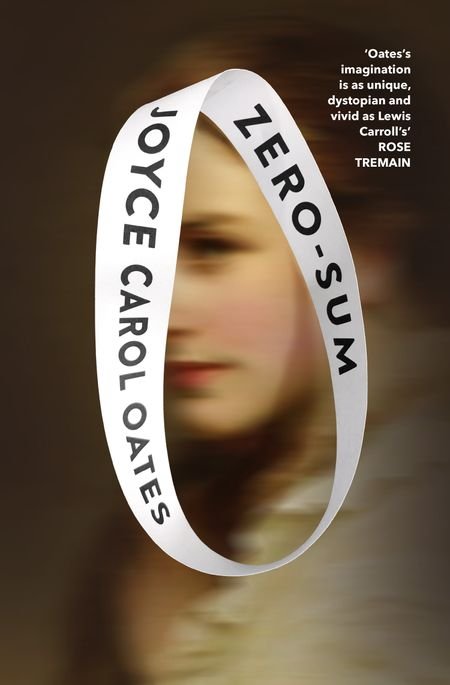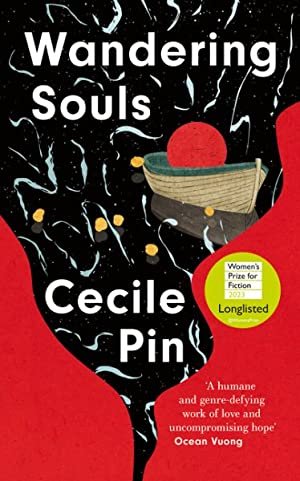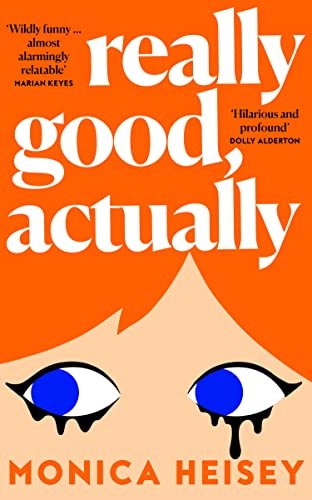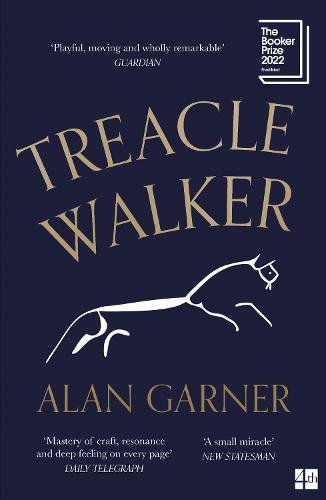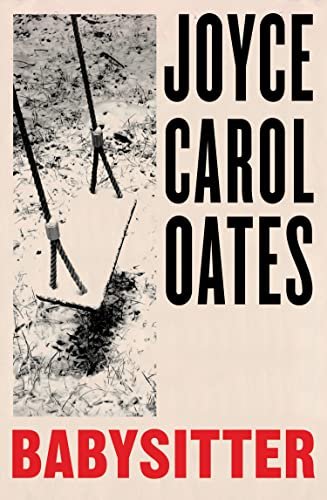I've been a longtime fan of Adichie's books. She's an intelligent and empathetic individual who writes meaningfully on a wide range of subjects including class, grief, feminism, family, love, race religion and nationality. These are all issues which are dramatised in this latest novel. But after reading the book and carefully considering statements she's made in interviews over the past several years, I feel extremely frustrated. It doesn't please me to write this but I feel that Adichie has been negligent in certain discussions that she herself has started and I think this should be taken very seriously especially with what's happening in the world today. I'm not writing this to be sensational or censorious. I don't think Adichie should be “cancelled”. I hope she continues to write and speak and engage in debates while considering a range of opinions. I'm glad she expresses her beliefs and has conviction in her opinions. I'm also not trying to convince anyone not to read her. However, I think a lot of readers are concerned about the controversy surrounding Adichie so I want to explain my understanding of it and give my own thoughts, but I'm not trying to be prescriptive. I just want to describe my own journey reading Adichie and personal thoughts about debates concerning whether to read her work or not.
I know some people will be annoyed that I'm writing about Adichie's beliefs and issues surrounding them rather than just focusing on the new novel. Believe me, in many ways, I wish I could just do that. There's a lot to appreciate and enjoy in this novel and I will comment on that as well. And I also know some people will be annoyed that I read this novel at all. Some like to separate the art from the artist and, of course, writers are complicated individuals with a range of beliefs. If we take issue with every problematic statement expressed by a current or historical author we'd be left with nothing to read. And this is why I did read Adichie's new novel even though I've been very concerned about the debate surrounding her. However, we don't read books in a bubble and I can't ignore how statements Adichie is making could easily contribute to social division and reinforce stigmas surrounding marginalized groups rather than fostering pragmatic debate. So I personally can't in good conscience discuss this author or book without taking this into account.
This is Adichie's first novel in over a decade and in the intervening time between novels she's become a controversial figure because she has repeatedly stated “When people talk about, ‘Are trans women women?’ my feeling is trans women are trans women.” She's elaborated on this by explaining “I think the whole problem of gender in the world is about our experiences... it's about the way the world treats us, and I think if you've lived in the world as a man with the privileges that the world accords to men and then sort of change gender, it's difficult for me to accept that then we can equate your experience with the experience of a woman who has lived from the beginning as a woman and who has not been accorded those privileges that men are.” There's a certain truth in this statement and I can see how it's a reasonable point to make. The trouble is that this suggests that trans women are inherently privileged because of their upbringing and possess advantages. It doesn't account for the sense of social stigma, discrimination or gender dysmorphia that's common to trans experience. Furthermore, this logic easily feeds into conservative rhetoric which further stigmatizes and legislates against the rights of trans people. I don't think Adichie intends this to be the case but it's nonetheless a serious consequence.
This is the real issue I've come to find with Adichie. It's not so much about what she's said, but what she's not said and how she's not engaged in a more nuanced debate on this subject despite having ample opportunity to do so in print and in interviews. This leaves the intention and meaning behind her statements uncertain. I don't think Adichie is transphobic (and it's simplistic to dismiss her as such) but I also don't think she's acknowledged reasonable concerns about her position regarding this issue. In this interview, when asked to elaborate more she mentions certain closed loop debates regarding who can use what toilets and whether trans women should participate in women's sports. I'm not saying these debates are inconsequential, but they are the ones which have come to dominate the media and distract from the material ways in which trans people are oppressed. It's dangerous to ignore this because now there's an American president openly making transphobic statements and just recently has presented to the state of Maine (where I was born and raised) an ultimatum to keep transgender athletes out of girls' and womens' sports or the state will lose its federal funding. I don't believe Adichie's values are aligned with this president or the political right as she's stated “There's a refusal in some parts of the right to acknowledge basic things about humanity.” But she also doesn't acknowledge how the statements she's made can so easily be weaponised and lead to oppression. So when Adichie defines the identity of a marginalized group to which she does not belong she ought to be very clear about her intentions and meaning. I don't think she's done this and this is negligent.
I am not trans, but I am an ally and I believe when it comes to issues concerning trans lives the people who we should be listening to are trans voices. I'd really recommend reading Shon Faye's book “The Trans Issue” if you're looking for more context about this in general. There's also a lot more to say on the debate about statements Adichie has made and if you want to consider this further there's a very good discussion on the podcast For Harriet which thoughtfully responds to Adichie's views.
But, before I move on to talking about this novel, I want to briefly approach this from a personal perspective. I feel the way in which Adichie speaks about labels can be applied to any form of identity because she considers that it's not useful to group everyone under one overall category. By this logic if someone were asked if gay men are men, the reply 'gay men are gay men' would be just as reasonable. However, as a gay man I'd find this offensive because my behaviour frequently doesn't always conform to stereotypical masculine standards. Because of this from a young age I was sometimes made to feel like I wasn't a “real man” and I've had to wrestle with feelings of shame and insecurity as a consequence. This logic also adds to social stigma and legislation against the rights of gay people in countries like Nigeria. This leads to persecution and a situation dramatised in this novel where the gay friend of one of the narrators is blackmailed because of his homosexuality. I appreciate how Adichie highlights that such persecution takes place. But this discrimination partly originates in a dangerous form of logic that categorizes and divides rather than acknowledging the humanity and respect which should be accorded to all human beings. Again, I'm not saying this is the intention behind what Adichie has said but in many interviews when she's been asked to expand on what she means and consider reasonable criticism she often refuses to speak more about it. I can understand she doesn't want to stoke more backlash and it's wrong that so much hate has been directed towards her, but when a public figure makes certain statements they need to be accountable for them. And it's especially important for a writer to carefully consider the potential consequences of the language that she uses.
Adichie doesn't directly address trans issues in “Dream Count” and I certainly didn't read the book searching for opinions about this or to find things to object to because of statements she's made outside of the novel. However, the story does spend a lot of time expressing frustration with a section of liberal academic society who dismisses nearly everyone and everything they encounter as “problematic”. One of the narrators of the book is Chiamaka who is a travel writer that comes from an extremely wealthy family and has a tempestuous romance with art historian Darnell. Darnell and his social circle find fault with well-meaning Chiamaka by diminishing her and sneering at her. Although Darnell purports to be a progressive he dismisses much of what Chiamaka says as “hormonal”. I'm glad Adichie highlights how some liberals are intolerant of people expressing their views or even allowing certain questions to be asked especially by those who aren't university educated. From some people I know who work in academia there's a real difficulty with fostering meaningful debates in classrooms because some students simply label everything as “problematic” and then refuse to discuss it. So this is a real problem worth highlighting. But just because such sneering attitudes exists in some sections of liberal society doesn't mean there aren't also real issues worth raising which lay behind such vociferous criticism. So I felt an undue amount of space is taken up in this novel skewering certain kinds of liberals in this way.
There's also a small line which feels like a veiled reference to the comment which landed Adichie in such hot water. Chiamaka is having a conversation with a lover about travel writing when it's remarked “He said he thought much of poetry was really travel writing and I said much of poetry was poetry and he laughed.” I can only assume Adichie was thinking about her controversial statement when writing this and perhaps it's just her way of trying to be lighthearted about something which has caused a considerable backlash against her. But it also feels somewhat mocking as if to say “Are you going to cancel me for saying poetry is poetry as well?” The couple in this scene met in an online Jan Morris fan club and Morris was an influential travel writer who was also a transgender woman. Adichie has remarked in interviews that she knows trans women exist because she's read Jan Morris for years. But merely acknowledging that certain people exist is not the same as speaking about them in a way which grants them the respect and rights that they deserve as a marginalised group who is frequently persecuted.
Even though I find Adichie's remarks on trans women objectionable and potentially harmful, of course I don't think it invalidates what she has to say on a whole range of other subjects which are dramatised in this novel. The story revolves between the points of view of four distinct women who wrestle with issues to do with work, love, faith, motherhood (or potential motherhood) and finding purpose in life. This also primarily takes place through the recent pandemic and it poignantly captures the strangeness and uncertainty of that time. It's moving the way it shows how our views on the people we were once romantically in love with can change so radically once a certain amount of time has gone by. That sense of thinking back and wondering 'why was I so in love with this awful person?' There's a line I found really striking where she remarks that “Love can be self damage if in fact it is love”. I found a certain scene absolutely heartbreaking where one character was expecting to be presented with an engagement ring. These women's feelings towards their romantic partners are also complicated by social and familial pressure to find the right man to settle down with and their awareness that they ought to decide if they want to have children soon as they are getting older.
This novel has important things to say about beauty standards in the world today, especially for girls and young women. At one point it's remarked that “If our daughters do not know how beautiful they are just as they are then surely we have failed.” Misogyny impacts these all these women's lives though it does so differently because they are from different economic and social groups. The story shows how today women who succeed in business are frequently vilified and women who speak up about rape are frequently vilified. One of the most impactful sections of the novel was based off from a real rape case which never went to trial – not because of a lack of evidence for the crime but because the female victim was demonised. Racism and issues to do with immigration factor into this case as well. So I found this section of the novel to be really meaningful but it did feel like it was somewhat crowbarred into the larger story involving a woman, her friend and her cousin.
There's a really touching and beautiful moment in the book when a character experiences a small act of kindness from a stranger. It's remarked how some kindness we don't forget but keep inside us and savour. The story also approaches issues to do with religion and faith from an interesting angle where at one point it posits that “maybe logic isn’t the point of faith, maybe succour is the point.” A lot of the story concerns the complicated relationships between mothers and daughters and how the form and nature of these relationships change over time. It's really interesting how the corruption of banking and business are exposed in this story. It also deals with the characters' very complicated feelings about American society. There are a lot of strident opinions expressed by different characters in a way which is often humorous. The character Omelogor runs a newsletter called ‘Dear Men’ and several of these cutting and funny newsletters are reproduced in the text. So this novel deals seriously with a wide range of issues, but takes a very humane approach to them so I frequently felt emotionally and intellectually involved with its story.
It's really unfortunate then that my engagement with this novel is overshadowed by Adichie's statements about trans women. I'm sure some people will feel that this is my fault as a reader and I should set my reservations aside to appreciate the novel separately. But personally I feel this issue is too important to simply ignore and it's not the fact that Adichie is expressing her beliefs which has frustrated me, but that she's not been clear about her intentions in making them or fully engaged with reasonable discussions about them. I'm really confused about why she hasn't done this because Adichie is such a thoughtful and powerful writer. But also when she knows how much her statements have effected her reputation as a public figure and the trust between her and her readership why wouldn't she discuss this further? Her refusal to do so has made me lose faith in her as an author and impacted my experience reading this novel. So I really hope Adichie continues to discuss her thoughts and particulate in meaningful conversations in the future.







